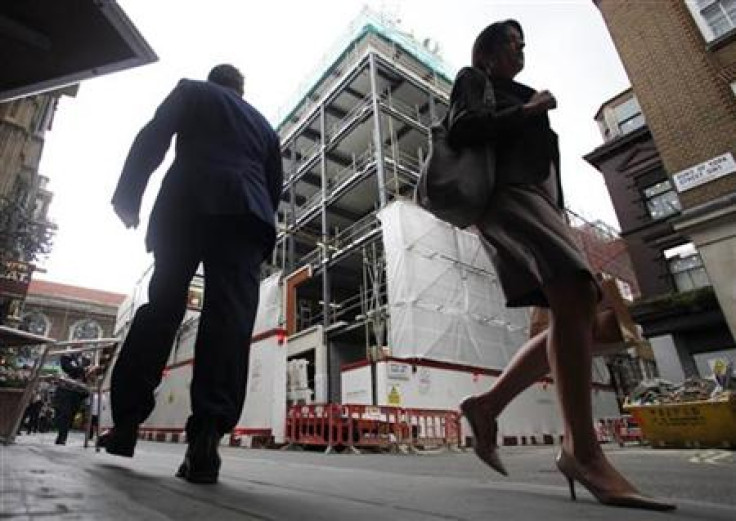'Blip' in UK Q2 GDP growth as spending not included; FTSE down despite 'positive' early gains

UK's Gross Domestic Product grew by 1.1 pct last quarter as economists forecasts were left behind in a massive construction, business and manufacturing growth that beat forecasts by as much as two times forecast of 0.5 - 0.7 pct.
"No details were released on the expenditure side of GDP in the first quarter." said economist Howard Archer of IHS Global however - meaning the first estimate does not explain how much of the growth is coming from Government spending or exports.
The figures will be considered in a second estimate out end of August.
The National Institute of Economic and Social Research (NIESR) meanwhile, added that the figures, which contain only 44 pct of economic data are more than likely to be a 'blip'.
Speaking to IBTimes, Simon Kirby, Senior Research Officer at NIESR said: "I do think growth will slow more sharply and I do think the inventory cycle and government spending is driving this [estimate]".
"Consolidation on government spending has already started in this fiscal year. We don't know what's happening in the days that we speak, but in July (Q3) we should begin to see the effects of this." he added. "We just hope that when growth does go back, it does not go back too sharply".
George Osbourne, however, Chancellor of the Exchequer, was more optimistic:
"While I am cautiously optimistic about the path for the economy, the job is not yet done. The priority now is to implement the Budget policies which support rebalancing and help ensure the sustained growth that the OBR forecast this year and next." he said adding that private sector was contributing all but 0.1 pct of growth in these figures.
However, his opponent, Alistair Darling suggested that growth was due to his previous Government's policies:
"This is the fastest growth we have seen for over four years. It shows that confidence was returning. And you can see the success of maintaining support for important sectors like construction," he said
The 'blip' in the GDP appears to have been taken in by the markets which responded negatively to the news despite it being better than expected.
By 10:48, the FTSE 100 had turned negative down 14 points, whilst the FTSE 250 - which is weighted more heavily to domestic UK company growth than international ones - remained positive ip 29.99 points to 10,033.17.
"The economy is still weak, businesses are struggling, and the full impact of the emergency Budget's austerity measures are yet to take effect. Risks of a setback remain serious." added the British Chambers of Commerce.
The figures released today show growth across the board particularly in business and financial services, and construction.
The only positive which are yet to see in the figures released today are the retail sales 'boom' that came in the end of Q2 that will be released in the final estimate of growth in late September.
Meanwhile, economists remain downbeat about where the economy is heading:
"Q2's much stronger than expected rise in UK GDP is a pleasant surprise, but is likely to prove as good as it gets as far as the pace of economic recovery is concerned." said Jonathan Loynes of Capital Economics.
"The second quarter will almost certainly be as good as it gets for the UK economy for some time to come. The economy will find it very hard to sustain the second quarter improvement in the second half of the year in the face of serious headwinds, including major fiscal tightening increasingly starting to impact, serious constraints on consumers, problems in the Eurozone and likely slower global growth." added Howard Archer of IHS Global.
"Much will depend on how well growth in the Eurozone holds up over the coming months." Howard of IHS Global Insight, concluded.
© Copyright IBTimes 2024. All rights reserved.





